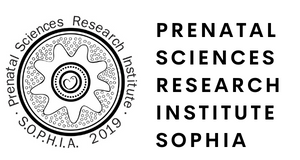EmpowerLife Symposium: Voices of Tomorrow
In a world where human rights, health, and community well-being are often discussed, a critical gap remains unaddressed: the recognition and protection of life from its very beginning — at conception. The urgency of cultivating a mindset that honors human life at all stages, from the prenate to the mature citizen, has never been greater. This symposium is not a luxury for the distant future but an essential shift required today.
2025: The Unheard Voices- Expanding Human Rights to Include the Prenates

Date: November 20th 2025 (World Children’s Day)
Purpose: The Voices of Tomorrow Symposium focuses on prenatal human rights, fostering dialogue about how to empower the voiceless — the unborn — and build inclusive, compassionate communities.
Agenda
Opening Circle: Opening Ceremony: “Silent Beginnings”
Keynote Talk: “The Unborn Child as a Rights Holder: Rethinking Human Rights”
Panel Discussion: “Silent Beginnings: Addressing Discrimination Against the Unborn”
News Round-Up: Presentations on recent legal, medical, and societal advancements in prenatal rights.
Art Integration: Story Walls: A collaborative space for participants.
Spoken Word & Music: Live performances by poets/ artists and musicians sharing pieces about life’s earliest journeys
Collaborative Action Circle: Closing Ceremony: “The Echo of Tomorrow”
Send your abstract in one of the above themes of the agenda and join your voice, become one of the speakers.
Dear friends,
We warmly invite you to Voices of Tomorrow, a powerful symposium uniting the EmpowerLife community in advocating for the rights and dignity of the unborn. Let’s transform silence into collective action and weave a future where every voice — no matter how young — is heard.
Date: November 20th (World Children’s Day)
Location: Online
Come for insightful discussions, storytelling, and collaborative art — all in the spirit of EmpowerLife’s mission. Together, we amplify the unheard.
Register here. Share with friends
Beyond the Debate: Rethinking Prenatal Life
Discussions about prenatal life often get trapped in a binary debate: are you pro-life or pro-choice? This framing not only oversimplifies a deeply complex issue but also prevents us from asking a far more fundamental question: what does it mean to be human, and how do our earliest experiences shape our development?
Rather than engaging in political and moral battles, prenatal sciences offer a broader, more inclusive perspective—one that acknowledges the complexity of human experience from its very beginning. By focusing on awareness, salutogenesis, and knowledge, we can create a conversation that transcends ideological divides and emphasizes both the significance of prenatal life and the well-being of women and families.
The Prenate as an Active Participant in Life
Scientific advancements in prenatal sciences demonstrate that prenatal life is not passive but interactive, adaptive, and deeply connected to the world before birth. The prenate responds to sound, light, and emotional states, forming early imprints that influence lifelong health and development. Recognizing this does not mean imposing moral or legal obligations; rather, it invites us to consider how we can create the best possible conditions for human flourishing from the very beginning.
A Salutogenic Approach: Supporting Both Mother and Child
Salutogenesis, the study of factors that support health and well-being, offers a powerful lens through which to view prenatal development. Rather than focusing on pathology, risk, or control, this approach asks: how can we create conditions that enhance both prenatal and maternal well-being?
- Informed Decision-Making: When people have access to knowledge about the prenatal period, they can make decisions based on awareness rather than fear.
- Emotional and Environmental Support: The more we understand prenatal consciousness, the more we can provide supportive environments for pregnant couples and their children.
- Intergenerational Health: A salutogenic perspective recognizes that prenatal experiences shape not only individual lives but also societal well-being across generations.
Moving Beyond Political Polarization
Advocating for prenatal awareness is not about restricting choices—it is about expanding them. Every individual deserves to make decisions from a place of knowledge and understanding, and that includes decisions about pregnancy. Recognizing the significance of the prenatal period does not mean imposing beliefs but rather enriching the conversation with a more holistic understanding of human development.
Creating a Future of Awareness and Care
If consciousness exists before birth, what does this mean for how we approach pregnancy, birth, and parenting? It means that every human being enters the world already in connection with life, carrying imprints of their earliest experiences. Understanding this allows us to shape a future where compassion, knowledge, and care guide our decisions—both personal and societal.
Rather than reducing the conversation to a political stance, we can elevate it to a dialogue about human potential, dignity, and the wisdom embedded in life from its very inception. By doing so, we step beyond division and toward a future where both the prenate and the mother are seen, understood, and supported in ways that honor the complexity of their shared journey.
